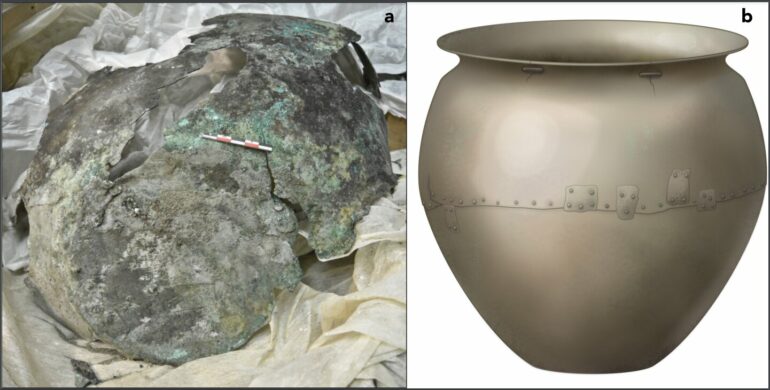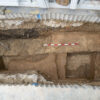Archaeologists have long been drawing conclusions about how ancient tools were used by the people who crafted them based on written records and context clues. But with dietary practices, they have had to make assumptions about what was eaten and how it was prepared.
A new study published in the journal iScience on August 18 analyzed protein residues from ancient cooking cauldrons and found that the people of Caucasus ate deer, sheep, goats, and members of the cow family during the Maykop period (3700–2900 BCE).
“It’s really exciting to get an idea of what people were making in these cauldrons so long ago,” says Shevan Wilkin of the University of Zurich. “This is the first evidence we have of preserved proteins of a feast—it’s a big cauldron. They were obviously making large meals, not just for individual families.”
Scientists have known that the fats preserved in ancient pottery and the proteins from dental calculus—the hard mineralized plaque deposits on the teeth—contain traces of the proteins ancient people consumed during their lives.
Now, this study combines protein analysis with archaeology to explore specific details about the meals cooked in these particular vessels. Many metal alloys have antimicrobial properties, which is why the proteins have been preserved so well on the cauldrons. The microbes in dirt that would normally degrade proteins on surfaces such as ceramic and stone are held at bay on metal alloys.
“We have already established that people at the time most likely drank a soupy beer, but we did not know what was included on the main menu,” says Viktor Trifonov of the Institute for the History of Material Culture.
The researchers collected eight residue samples from seven cauldrons that were recovered from burial sites in the Caucasus region. This region sits between the Caspian and Black Seas spanning from Southwestern Russia to Turkey and includes the present-day countries Georgia, Azerbaijan, and Armenia.
They successfully



